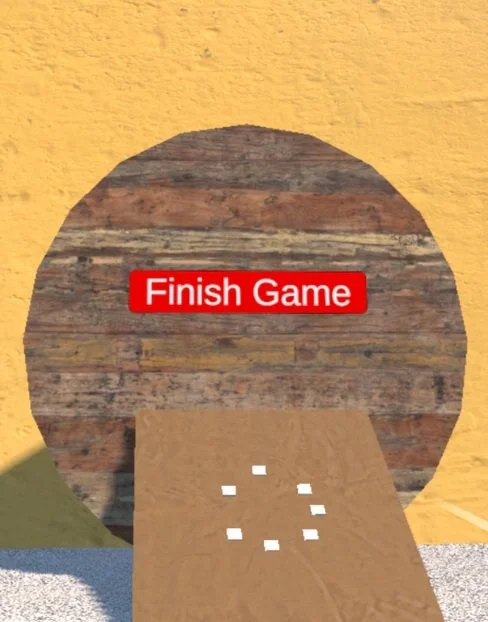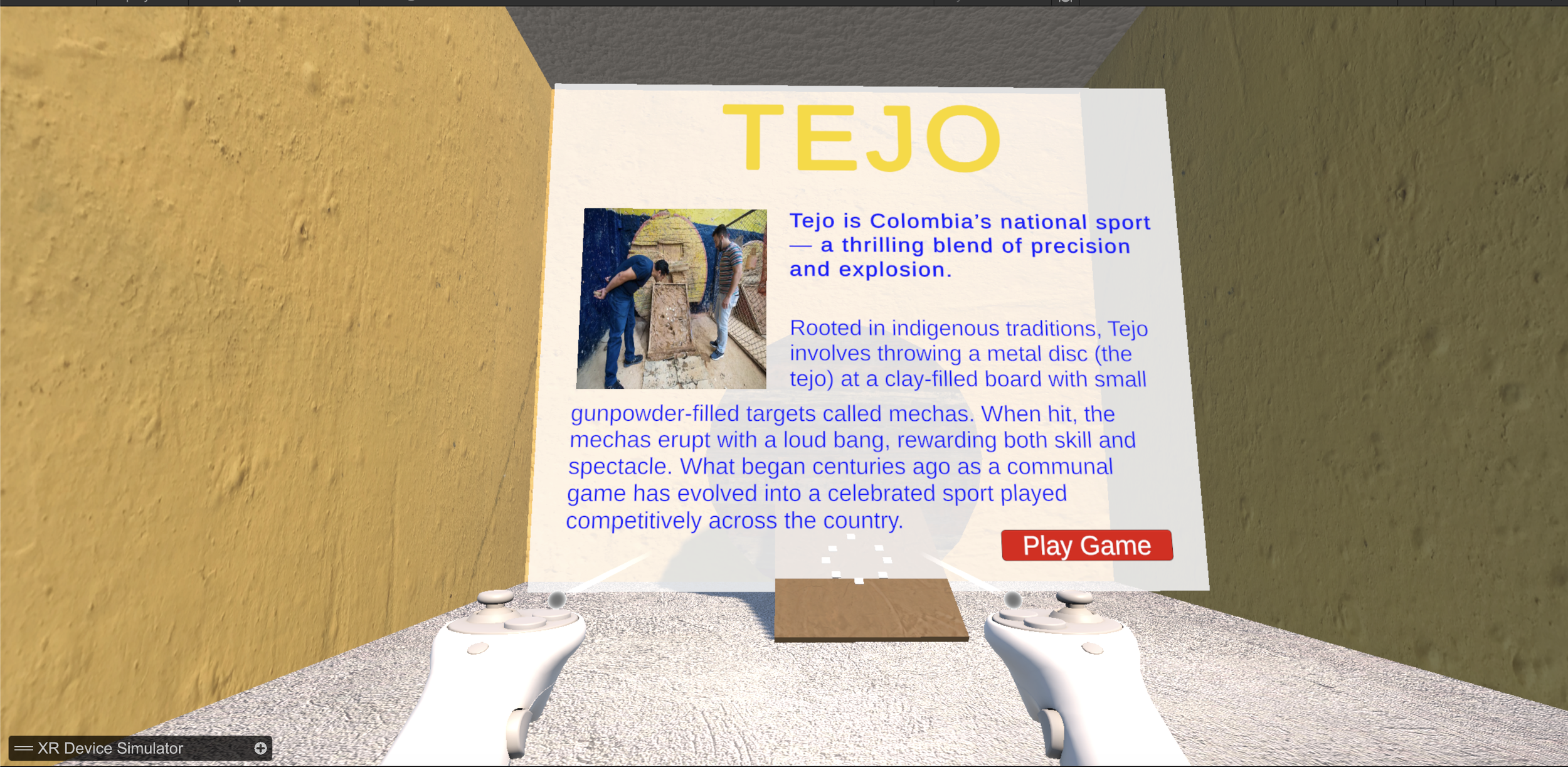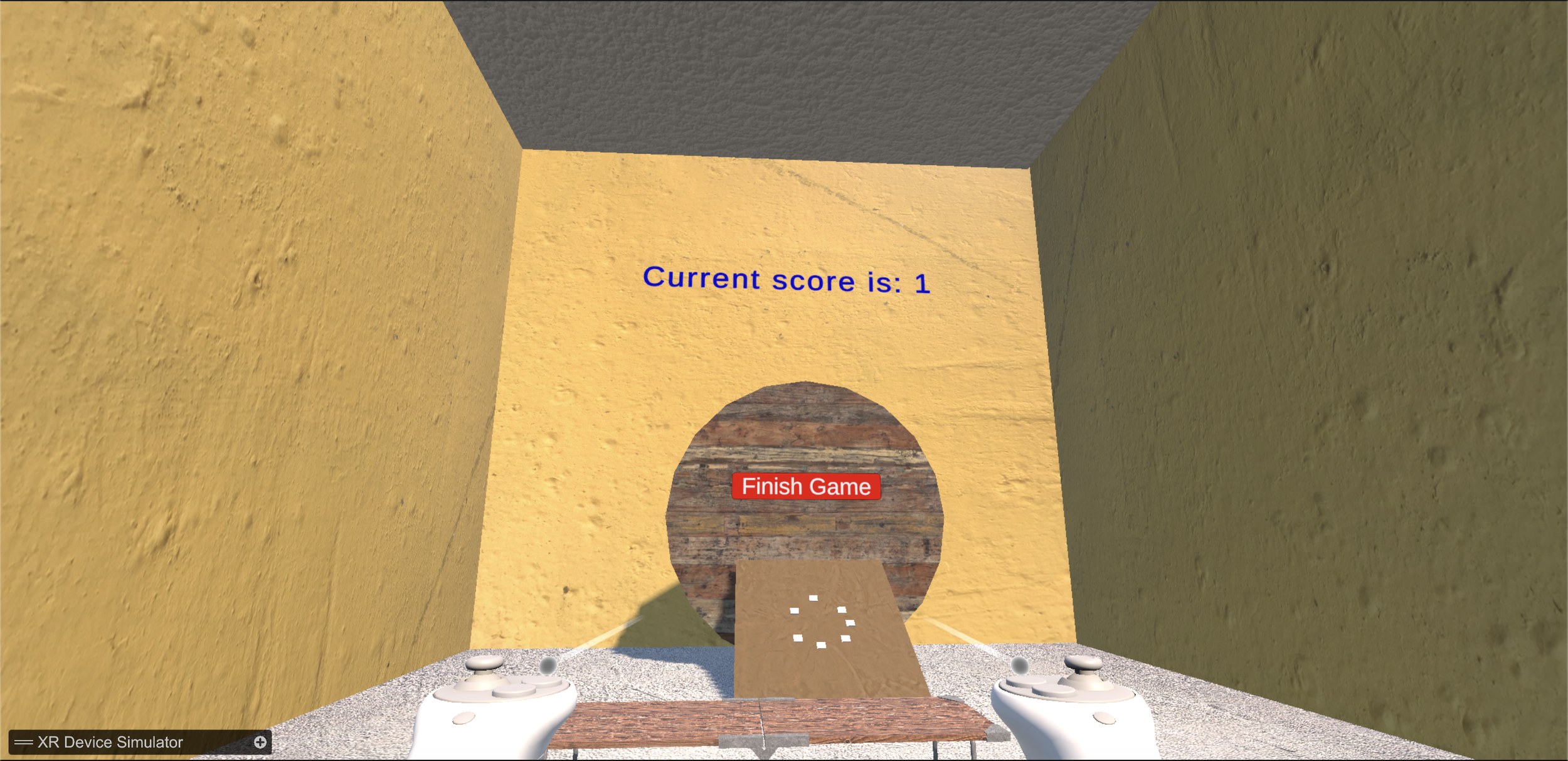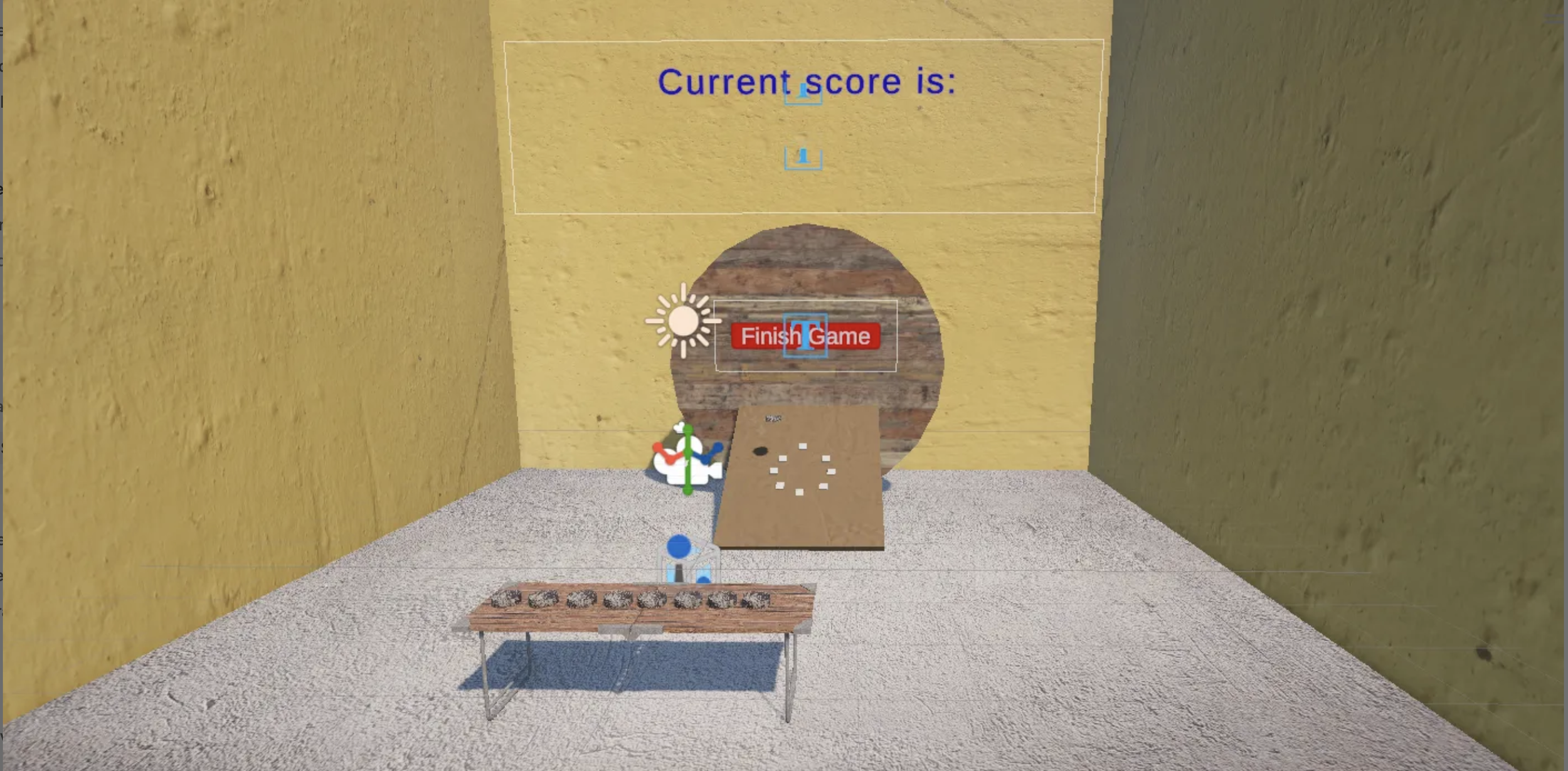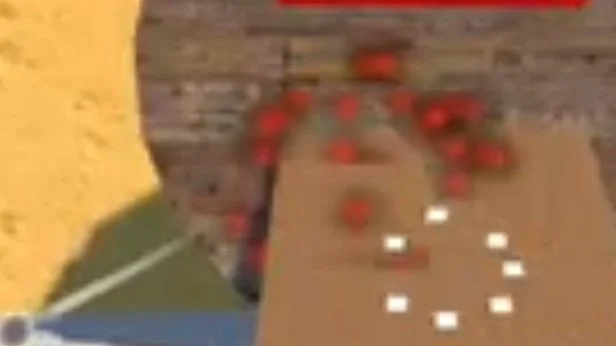
Tejo VR: Colombia’s Explosive National Sport
Role: UI/UX Designer, XR Developer
Skills: Unity, C#, XR Interaction Toolkit, Spatial Audio
Timeline: 2 Weeks
Collaborators: Solo Project

Project Overview
Tejo VR is a culturally immersive virtual reality experience that brings Colombia’s national sport to life. In this fast-paced simulation, users enter a lively arena inspired by real Tejo fields and compete by throwing metal discs (tejos) at a clay board lined with mechas—small explosive targets. Designed to blend physical motion, playful competition, and cultural education, this experience introduces players to the heritage of a game still played across rural and urban Colombia,
Problem Statement
Traditional cultural education tools often fail to capture the energy behind heritage-based games. Tejo VR set out to:
Simulate the thrill of Tejo while honoring its cultural context
Offer movement-based interaction with real-world accuracy
Integrate sound, competition, and feedback for immersion
Goals & Challenges
Goal
Introduce players to the cultural roots of Tejo
Highlight Tejo as a symbol of Colombian identity and tradition
Make the game accessible to global audiences unfamiliar with the sport
Reimagine Tejo not just as a game, but as a gateway into Colombian social life and community dynamics
Deliver an interactive, high-impact VR experience that celebrates cultural heritage
Challenges
Recreate the weight and throw arc of a real tejo with satisfying physics
Incorporate realistic audio: metallic hits, clay impacts, and mecha explosions
Balance fun, arcade-style gameplay with cultural respect and accuracy
Maintain smooth frame rates despite particle effects and collision-based triggers
Prevent motion sickness and optimize for varied play spaces on Meta Quest
Tejo Game

Design Process
Inspired by firsthand Tejo experiences and cultural research, I began prototyping the arena environment in Unity, modeling a regulation Tejo board and setting up XR interactables. From there, I refined mechanics like:
Grabbing and throwing physics for the tejo disc
Explosion triggers tied to accurate target collision
Scorekeeping UI for single-player challenge mode
Feedback loops and motion feel were key—early iterations felt floaty or underwhelming. Tweaks to tejo mass, collider tuning, and explosion particle size helped fine-tune user satisfaction.
Target Users
VR gamers looking for unique, culturally rooted gameplay
Colombians who want to enjoy Tejo without the loud bars or lingering gunpowder smell
Latin American users seeking cultural representation in immersive media
Educators introducing students to Colombian traditions through interactive learning
General audiences interested in fast-paced, physics-based VR sports
Museums and cultural institutions aiming to modernize heritage exhibitions
Real Tejo

User Experience Highlights
Intro Screen
Users are welcomed into the arena with a brief overview of the game’s cultural roots and instructions on how to play.
Game Mode
Players grab a tejo, aim for explosive mechas, and throw toward the clay board in a high-energy match
End Screen
Final score is displayed with an option to replay, reinforcing replayability and social competition
Locomotion
Supports room-scale VR with optional teleportation or joystick movement

Interactive Features
Realistic Interaction
Grabbing, throwing, and impact mechanics simulate real-world Tejo physics.
Explosions + Feedback
Direct hits trigger satisfying visual effects, metallic clinks.
Score Tracking
Points accumulate in real time with a dynamic UI and haptic confirmation

Tejo VR
Watch the walkthrough video below to experience Tejo VR in action. This demo captures the full gameplay sequence—from the cultural intro screen to the explosive throws, real-time score tracking, and celebratory end screen. Designed for Meta Quest, the experience is optimized for smooth performance and immersive feedback, offering users a fast-paced, culturally rich journey into one of Colombia’s most iconic and thrilling traditional sports.

Reflection
This project was a masterclass in interdisciplinary collaboration. While our team focused on building and optimizing the virtual space, the art history team shaped the experience’s educational core. One of our greatest challenges was balancing visual fidelity with technical performance—making the textures and lighting feel real without overwhelming the Meta Quest hardware.
The end result is a powerful, serene, and educational space that lets users feel the depth of Islamic architecture, not just observe it.

